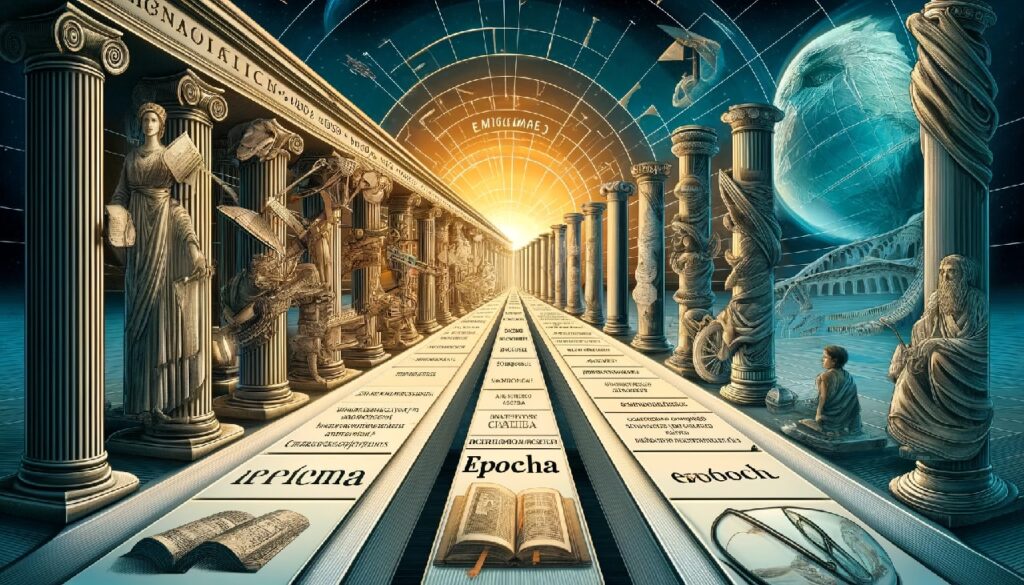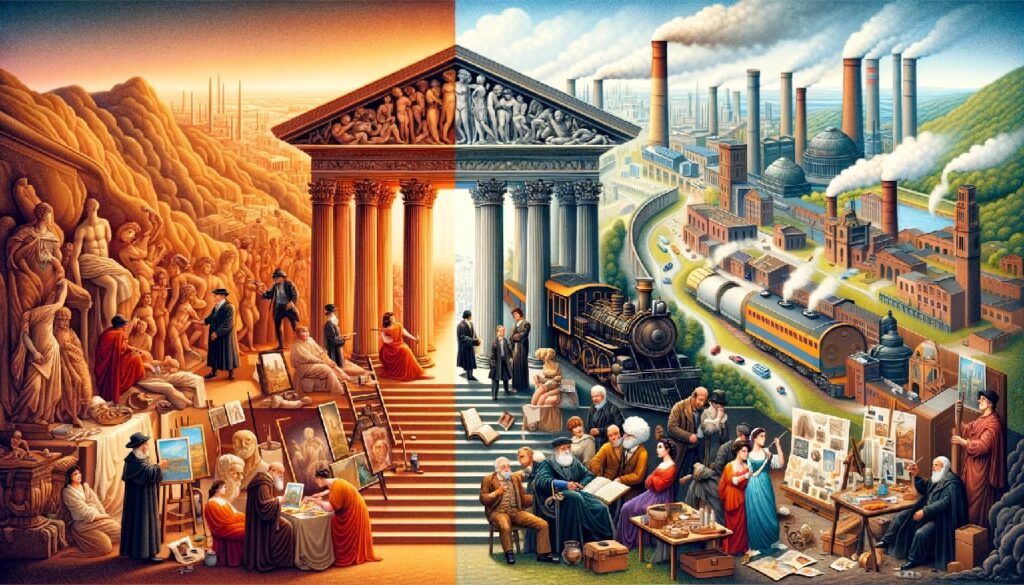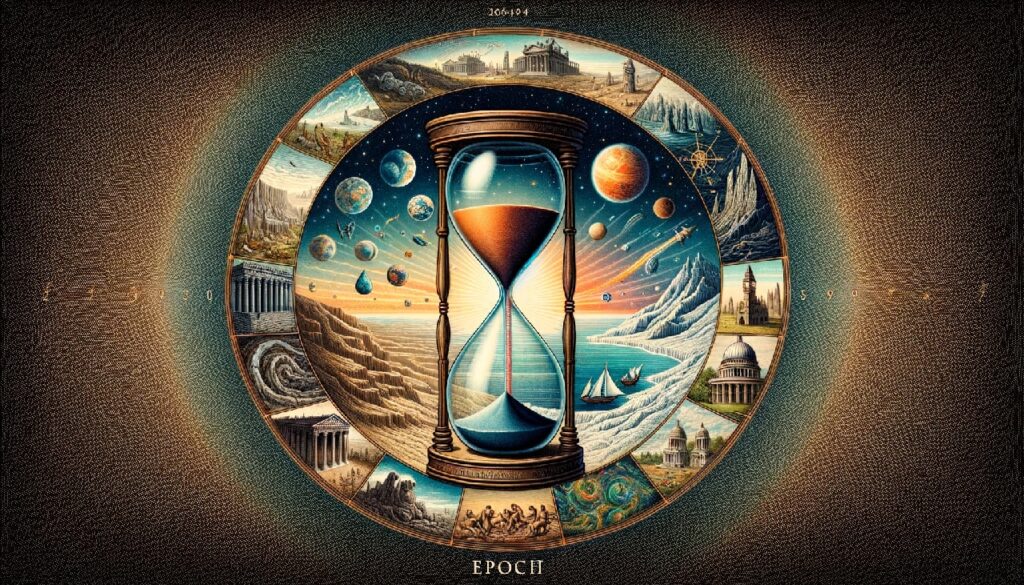EPOCH


An Examination of the Term “Epoch” in Historical Context
The term “epoch,” derived from the Ancient Greek word “ἐποχή” (epokhē), has been a cornerstone in the lexicon of historians and scholars across centuries. Its significance extends beyond mere chronology, embodying the essence of transformative periods in human history.
Origins and Etymology
The Greek “ἐποχή” means a “fixed point in time,” a definition that aptly captures the essence of the word as it is used in modern discourse. The term was assimilated into Latin as “epocha,” eventually making its way into Middle English by the early 17th century. Historically, an epoch is recognized as a momentous point marking the beginning of a new period, often characterized by significant events, cultural shifts, or scientific advancements.
Usage in Historical Scholarship
In the annals of history, epochs serve as markers that delineate the boundaries between distinct periods. For instance, the fall of the Western Roman Empire in AD 476 is widely considered the end of the Classical Antiquity and the beginning of the Middle Ages in Europe. This pivotal moment is referred to as an epoch due to the profound transformations in political structures, societal norms, and cultural paradigms that ensued.

Epochs in Different Disciplines
The concept of an epoch is not confined to historical studies alone. In geology, an epoch denotes a subdivision of the geological timescale, representing significant periods during which particular rock strata were deposited. The Holocene Epoch, for example, is the current geological epoch, beginning approximately 11,700 years ago after the last major ice age. This epoch is characterized by the advent of human civilization and significant climatic changes.
In astronomy, epochs are critical for understanding celestial mechanics. An epoch in this context is a specific moment in time used as a reference point for celestial coordinates, which allows astronomers to track the positions and movements of celestial bodies with precision.
Cultural and Social Epochs
Culturally and socially, epochs often reflect shifts in human thought, artistic expression, and social organization. The Renaissance Epoch, spanning the 14th to the 17th century, marked a profound revival of art, culture, and intellectual pursuits in Europe. This period was characterized by a renewed interest in the classical knowledge of Ancient Greece and Rome, leading to significant developments in art, science, and literature.
Similarly, the Industrial Epoch, beginning in the late 18th century, heralded an era of unprecedented technological advancement and economic change. The industrial revolution transformed agrarian societies into industrial powerhouses, fundamentally altering the fabric of daily life, work, and social structures.

Conclusion
In conclusion, the term “epoch” holds immense significance in historical discourse, encapsulating the idea of pivotal moments that shape the course of history. Whether in the realms of history, geology, astronomy, or cultural studies, epochs represent the critical junctures that define and redefine our understanding of the world. The study of epochs allows historians to contextualize and interpret the vast tapestry of human experience, providing a framework for understanding the continuous evolution of societies and civilizations.
